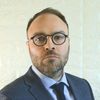
Risk averse banks threaten agent businesses
The consultation recognises that letting agents are struggling to access pooled client accounts (PCAs) because the Money Laundering Regulations (MLRs) do not clarify whether Simplified Due Diligence (SDD) may be applied to PCAs where the customer is not a regulated firm for AML.
Only agents who manage properties with monthly rental incomes of €10,000 or more are required to comply with anti-money laundering (AML) regulations and register with HMRC for AML supervision.
But despite this only encompassing a minority of letting agents, many continue to face challenges in maintaining their PCAs because banks often insist all letting agents must carry out Customer Due Diligence to the level as set out in the MLRs.
This is against the guidance issued by the Joint Money Laundering Steering Group, prevents letting agents from meeting their obligations under Client Money Protection rules, and forces a breach of Tenancy Deposit legislation where letting agents hold deposits and can’t put that money into a PCA.
Bring all agents under AML
Propertymark has long called for the UK Government to bring all letting agents and landlords under the scope of Money Laundering Regulations and remove the monthly rent threshold to reduce the risk of cash payments being used to ‘clean’ dirty money. This would create consistency and cover all tenancies in the private rented sector, give banks the reassurance they need that the property sector is being policed correctly, and reduce a barrier that can make it hard for estate agents and letting agents to operate.
Propertymark lobbying and member support
In August 2023, Propertymark wrote to the Chancellor highlighting concerns from members relating to banks closing undesignated or pooled client accounts of letting agents. In October 2023, Kelly Tolhurst MP outlined issues from agents and other sectors in Parliament at a Westminster Hall debate on business banking and Pooled Client Accounts.
Propertymark met with officials at HM Treasury in November 2023 at the request of Baroness Penn, Treasury Lords Minister, to raise ongoing concerns. Case studies and examples from Propertymark members were put to officials as well as solutions to resolve the situation.
In 2020, our successful lobbying led the Joint Money Laundering Steering Group to produce guidance to show banks that their actions were not in line with AML regulations. The revised 2020 guidance now acknowledges the distinction between the AML and CMP requirements for letting agents.
We have taken on individual cases for members who have been notified by banks that client accounts will be closed, writing to individual branches to explain the situation and outline that they are not complying with current industry guidance and best practice, and that letting agents cannot function without a pooled client account.
We have also offered alternative solutions for members who cannot find a high-street bank willing to open a pooled client account for their business – one such solution is the use of a Client Accounting Service Provider (CASP), which is a third-party organisation that manages client money on behalf of the agent. A CASP provides several benefits compared to an agent managing client money through a high street bank, the greatest of which is that a CASP provides a solution for agents who can no longer open undesignated client accounts with high street banks. However, there are risks and certain requirements for using a CASP.
Improving effectiveness of the MLRs
The HM Treasury consultation on improving the effectiveness of the Money Laundering Regulations covers four core themes including making customer due diligence more proportionate/effective and providing clarity on the scope of Money Laundering Regulations. The consultation closes on 9 June 2024
Member experiences matter
Agents who have had challenges opening or retaining a pooled client account are encouraged to get in touch with our Policy and Campaigns team to share their experience via [email protected]
We will use insight gathered from our members to shape our approach to future lobbying, input, and consultation work.







